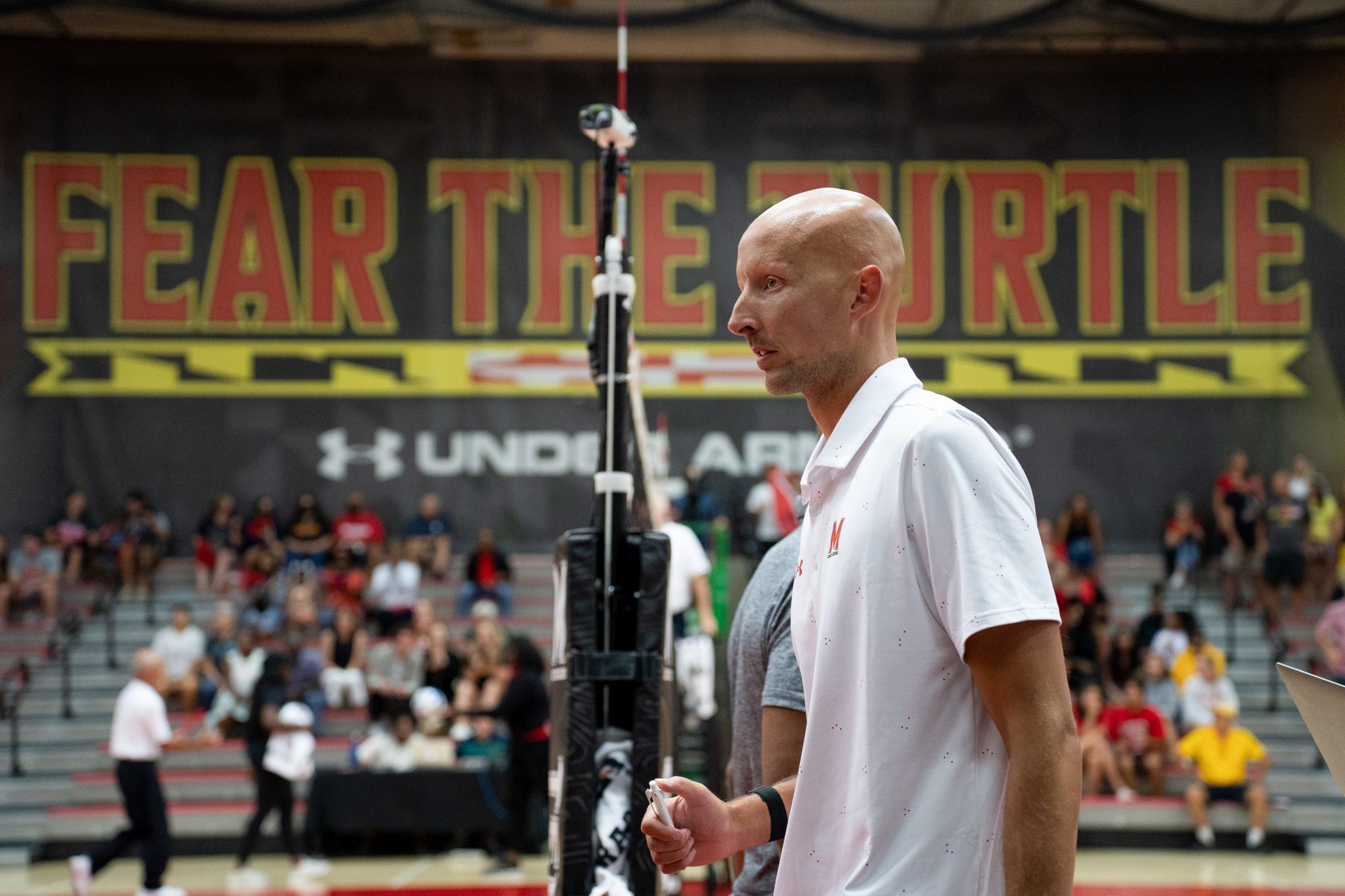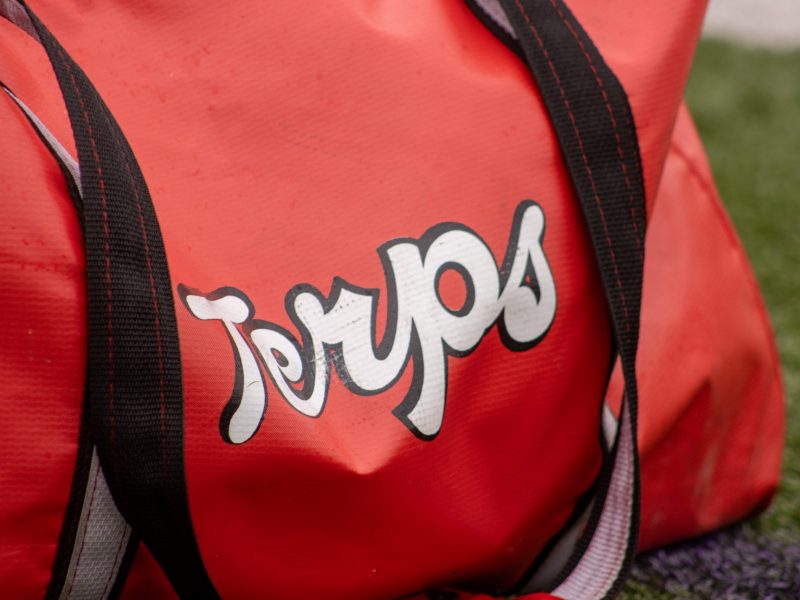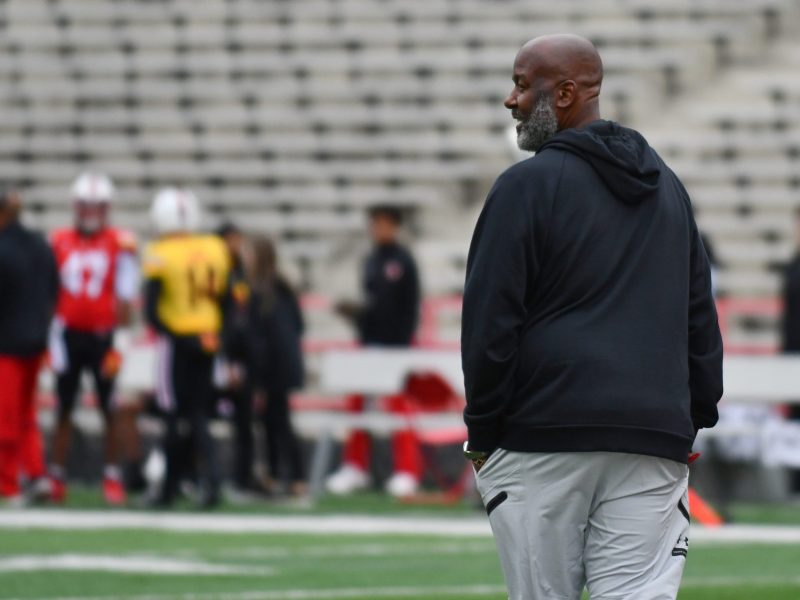Maryland volleyball couldn’t pull away from Princeton in the first set of Saturday’s match at the Maryland Tournament in College Park. The Tigers overcame the Terps’ scoring runs and pulled ahead as the set approached its summit.
Princeton remained efficient, belting six more kills to keep the pressure on Maryland. But the Terps were flawless down the stretch. Maryland outclassed the Tigers’ offense with an error-free, eight-putaway performance. The team’s defense grabbed a critical point on Eva Rohrbach and Laila Ivey’s combined block late in the set. Rohrbach’s spike two points later sealed the 25-23 win.
The Terps earned their victory. Rohrbach, Ivey and Sam Csire supplied most of Maryland’s scoring throughout the sequence, but a key contributor to the Terps’ late set success watched from the sidelines.
Assistant coach Ryan Ammerman has installed a variety of new strategies within the team during his first season at Maryland, including a practice drill designed to condition the Terps physically and mentally for the pivotal late stages of hard-fought sets like the one they won Saturday.
“Good teams aren’t gonna lose. You’re gonna have to beat them,” Ammerman said. “And so after 20 [points], they’re not gonna miss a serve or hit the ball out of bounds. They’re gonna make the serve, they’re gonna hit a good shot, and you have to execute, so we’re working on winning our way out of that.”
[Sydney Bryant displayed resilience off the bench in Maryland volleyball’s win]
The drill is a six-versus-six affair, just like a live game. The teams are immediately thrust into a late-set situation with the score tied or separated by a few points.
An unforced error — hitting the ball out of bounds or into the net — does not award the other team a point. Instead, the team that committed the miscue has its score reset. The game doesn’t end until one team reaches 25.
The drill pushes players to overcome their fear of committing an error. It develops their confidence to be aggressive and smart in high-leverage situations. The ultimate challenge for both teams is to strike a balance between playing too passively or too recklessly.
“If you go fast, it burns you out. If you go slow, it burns you out,” coach Adam Hughes said. “There’s no way of beating it. You just gotta go do it.”
[Balanced attack, endline discipline lead Maryland volleyball to 3-0 sweep of Howard]
Ammerman said the drill, which he learned from Jim Miret, the coach at Front Range Volleyball Club in Meridian, Colorado, is the closest way to simulate a match’s duress in practice. The drill is all about “learning to play one point at a time,” Ammerman said.
With no room for error for either team, it is common for the score to reset multiple times. Some games have lasted 45 minutes, according to senior pin hitter Samantha Schnitta. The drill sometimes frustrates players, Acevedo said, but maturity often prevails.
“I think some of my favorite moments are when one of our players [at the] end of the game makes an error and our setters are giving them the ball again because that’s how they’re going to build trust,” Acevedo said.
Ammerman’s drill has paid dividends on the court for Maryland so far this season. The Terps have won 13 of 22 sets decided by five points or fewer.
The drill forces the Terps to be smart and intentional, Csire said — an encouraging trend ahead of the team’s matches on Friday and Saturday at the Hilton Garden Inn Florida Gulf Coast University Classic in Fort Myers, Florida.
“Especially when … the crowd is crazy [and] the team’s playing really well, it adds a lot more pressure,” Csire said. “And so doing that in practice, it allows you to get used to it, it allows you to adapt to it and to just be confident.”



